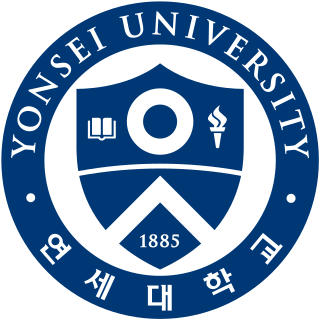
Yonsei University is a private Christian university in Seoul, South Korea. It is part of the SKY universities.

Hankuk University of Foreign Studies is a private research university based in Seoul, in South Korea. The university currently teaches 45 foreign languages. In addition, it contains studies in humanities, law, political science, social sciences, business, medical science, natural sciences, and engineering.

Dankook University, abbreviated as DKU, is a private research university in Yongin and Cheonan, South Korea. The university was established in 1947. It was the first university established after the National Liberation Day of Korea, and its original location was in Jongno District and Yongsan District, Seoul.
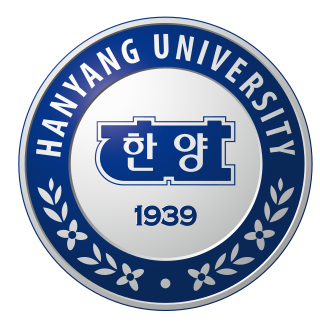
Hanyang University is a private research university in Seoul and Ansan, South Korea. Hanyang derives from the former name of the capital Seoul used during the Joseon Dynasty. The university was founded in 1939 as an engineering school, and was the country's first college to offer engineering and architecture programs.

Duksung Women's University is a private university in Seoul, South Korea founded in 1920.

Kwangwoon University is a comprehensive and private research university in Nowon-gu, Seoul, South Korea, offering undergraduate and graduate programs. Chosun Radio Training Center, the predecessor of Kwangwoon University, was the first institution to teach electronic engineering studies in Korea. The foundation is Kwangwoon Academy, an incorporated educational institution. As of 2019, there are 11,500 undergraduates and 1,292 graduate students.

Kyonggi University is a private university in Suwon, Gyeonggi-do; established in 1947. KGU has over 17,000 undergraduate and postgraduate students in two campuses. The main campus is in Suwon. The Seoul campus is located in Seodaemun District.
Geumgang University is a South Korean university with a residential college model, located in the countryside next to Gyeryong Mountain, between Nonsan and Daejeon. The campus is within the administrative boundaries of Nonsan's Sangwol-myeon district.
Underwood International College, Yonsei University was founded in 2006 as a constituent college of Yonsei University. Based in Seoul and Incheon, South Korea.

Konkuk University is a South Korean private university founded in 1931 and it is one of the top universities in South Korea. The university was founded based on three virtues: sincerity, fidelity, and righteousness.
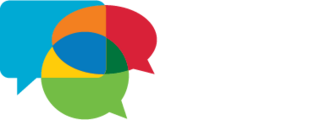
The National Security Language Initiative for Youth (NSLI-Y) is a US Department of State ECA program launched in 2006 by President George W. Bush to develop the foreign language skills of American high school students in eight critical-need languages. Korean, Mandarin, Russian, Arabic, Hindi, Bahasa Indonesian, Tajiki, and Turkish are all taught in summer and academic year programs abroad. NSLI-Y is the most prestigious foreign language program available to American high schoolers and many alumni go on to study at Ivy League institutions as well as hold high positions in government and a variety of industries worldwide.
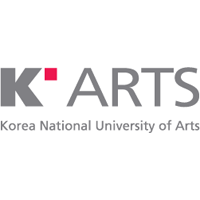
Korea National University of Arts is a national university in Seoul, South Korea. Korea National University of Arts was established in 1993 by the Ministry of Culture, Sports and Tourism of Korea as the only national university of arts with an aim to serve as a leading institution which cultivates artists. It has 26 departments in six schools: Schools of Music, Drama, Film, TV & Multimedia, Dance, Visual Arts, and Korean Traditional Arts.

S³ Asia MBA is a selective dual degree, tri-city, tri-university global MBA program. Students enrolled in this program study one semester each at three business schools - School of Management of Fudan University, Korea University Business School of Korea University and NUS Business School of National University of Singapore. The name of the program, S³, is derived from the first letter of the three cities where the business schools are located: Shanghai, Seoul and Singapore. It is claimed that presently, the program is the only one of its type in the world.
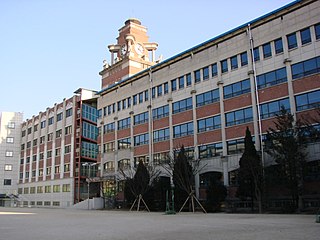
Hanyoung Foreign Language High School is a high school in South Korea. Located in southeast Seoul, South Korea, the medium-sized college preparatory school was founded in 1990.

Sejong University is a private university located in Seoul, South Korea known for its standing in hospitality and tourism management, dancing, animation and rhythmic gymnastics. Founded as the Kyung Sung Humanities Institute, it was renamed in 1978 to its present name in honor of Sejong the Great, the fourth king of the Joseon Dynasty and overseer of the creation of the Korean alphabet Hangul.
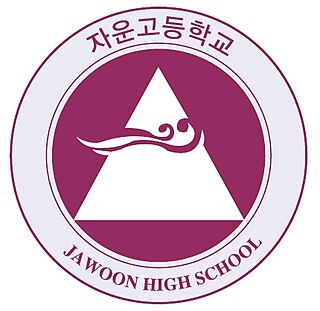
Jawoon High School, established in 2004, is a public high school located in Chang 4-Dong, Dobong-gu, Seoul. Jawoon High School is one of the newest schools with up-to-date facility in Dobong-gu, and it is well known as a Dobong-Vision School with Sunduck High School.

Torch Trinity Graduate University is an evangelical graduate school and seminary in Yangjae-dong, Seocho District, Seoul, South Korea. It was formerly called Torch Trinity Graduate School of Theology (TTGST). The university commits itself to the cause of Christian missions, with an emphasis on training future leaders of the church from all over the world.
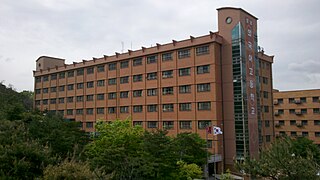
Seongnam Foreign Language School, commonly referred to as SNFL is a national school located in Seongnam, South Korea. SNFL offers regular high school courses with four different second language programs.
Seowon University is a four-year private university located in Cheongju, North Chungcheong, South Korea. It was established in 1968 and was also called Cheongju College of Education by its old name.
Hwang Kyung Koh was the founder and first President of Seoul Women's University. She is also known by her art name Bahrom, which means "to live right".

















